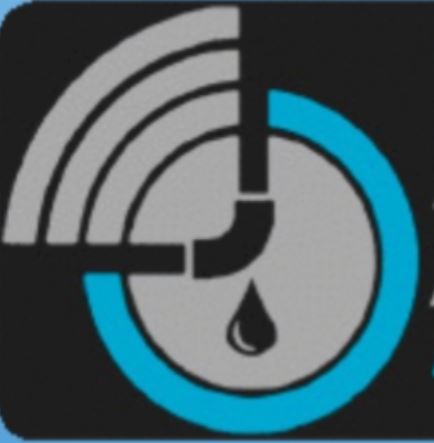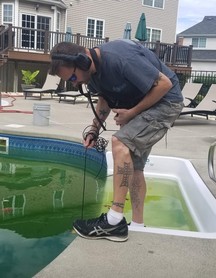- Home
- Pool Leak Repair
- Pool Pressure Testing
- Pool Leak Detection
- About Us
- Contact
Navigation- Home
- Pool Leak Repair
- » Main Drain Testing
- » Hotel Main Drains
- » Emergency Main Drain Repair
- » Additional Services
- » Vinyl Pool Liners
- » Pool Covers
- » Pool Repair Diver
- » The Leakalyzer - Leak or Evaporation Test
- » Pool Skimmer Problems
- » Termite Leak Repair
- » Pool Leak Detection
- » Underwater Services
- Pool Pressure Testing
- » Pipe Leak Detection - Underground
- » Skimmer Repair
- Pool Leak Detection
- About Us
- » Training and Support
- » » Leak Detection Training
- » » Leak Phone Support
- » FAQ
- » Testimonials
- » Checklist Before We Come
- » Service Areas
- » Privacy Policy
- » Leak Videos
- » » Leak Articles
- » » » Swimming Pool Leak Detection
- » » » Do leak companies fix leaks
- » » » Pool Leaks - home owners save money
- » » » Pool Water Evaporation
- » » » Pool Dye Testing
- » » » Narrow down a pool leak
- » » » Pool Structure Leaks
- » » » Pool Leak Indicator Level
- » » » Water Loss Speed
- » » » Pool Plumbing Leaks
- » » » Why Pools Leak
- » Terms & Conditions
- Contact
- » Email - Phone
Call Us 732-705-7344
NJ LICENSED & FULLY INSURED
Pool Water Evaporation
Pool Water Evaporation NJ
Anyone who has ever worked in swimming pool leak detection knows that pool leaks are sometimes just evaporation that the pool owner mistakenly believes to be an active leak. The first step in leak testing any swimming pool is to figure out if the pool is actually leaking. A surprising amount of "pool leaks" are actually just periods where the water is evaporating quickly due to environmental conditions. If you are new to owning a pool then you will not be familiar with evaporation rates or what you should consider as normal evaporation rates for your pool. The actual amount of water that your pool will lose to evaporation will be unique to your pool. Factors such as your geographic location, ambient temperature, water temperature, direct sunlight and cross winds will all have an effect on your evaporation rates as will whether you use a solar blanket cover at night.
I can tell you that in our geographic area of new jersey about 1/8" or just slightly higher (rare occasion of 1/4 inch depending on location) of water loss per day would be normal however this is not helpful to you. You may live in an area with much higher rates of evaporation. This is why the bucket test is used to determine if a pool is leaking or if the pool is simply losing water through evaporation. The reason why the bucket test is so important is that is removes the external factors that make your evaporation rates unique. The bucket test allows you to measure the rate of water loss in your pool versus the rate of evaporation in your pool. This is the first test that every pool owner with a suspected leak should do. If you are getting inconclusive results with your test then something as simple as knowing the temperature from one day to the next can help you to accurately interpret the results of your tests.
Monmouth County Service Areas
Aberdeen Asbury Park Atlantic Highlands Avon-by-the-Sea Belmar Bradley Beach Brielle Colts Neck Eatontown Fair Haven Freehold Borough Freehold Township Hazlet Highlands Holmdel Howell Keansburg Keyport Little Silver Long Branch Manalapan Manasquan Marlboro Matawan Middletown Millstone Monmouth Beach Neptune Neptune City Ocean Oceanport Red Bank Rumson Shrewsbury Spring Lake Spring Lake Heights Tinton Falls Union Beach Upper Freehold Wall West Long Branch
Middlesex County Service Areas
AT THE PRESENT TIME WE DO OFFER SERVICES TO:
Carteret Cranbury Dunellen East Brunswick Edison Helmetta Highland Park Jamesburg Metuchen Middlesex Milltown Monroe New Brunswick North Brunswick Old Bridge Perth Amboy Piscataway Plainsboro Sayreville South Amboy South Brunswick South Plainfield South River Spotswood Woodbridge
Ocean County Pool Service Areas
WE OFFER SERVICES TO THE FOLLOWING AREAS ONLY:
Bay Head, Brick, Lavallette, Mantoloking, Point Pleasant, Seaside Heights, Toms River
AT THE CURRENT TIME WE DO OFFER SERVICES TO:
Barnegat Beach Haven Beachwood Berkeley Eagleswood Harvey Cedars Island Heights Jackson Lacey Lakehurst Lakewood Little Egg Harbor Long Beach Manchester Mantoloking Ocean Gate Ocean Pine Beach Plumsted Ship Bottom South Surf City Stafford Toms River Tuckerton
Pool Leak Detection in
Monmouth, Ocean And Middlesex Counties NJ
NJ POOL PATCHER
NJ Pool Patcher, LLC
29 Roberts Drive
Neptune City, NJ 07753
732-705-7344
Sales@PoolPatcher.com
- Pool Leak Detection & Pool Leak Repair Services : NJ Pool Patcher A Pool Article Pool Water Evaporation


